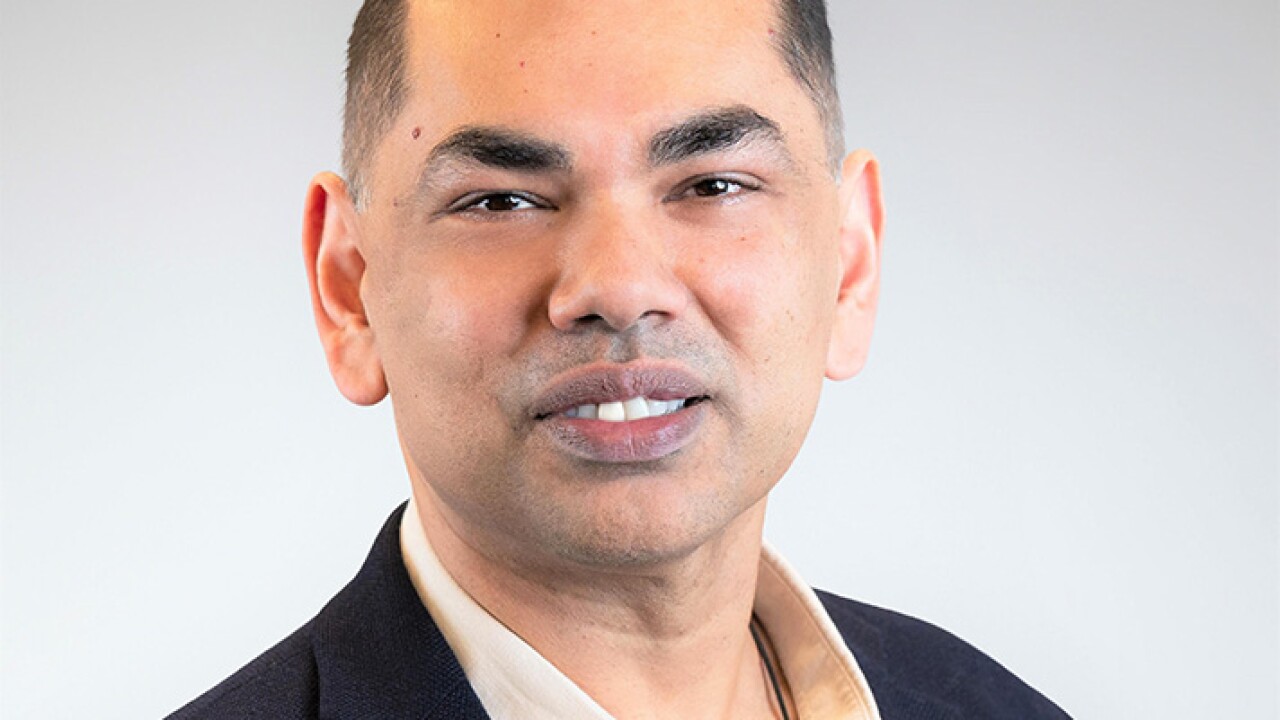
LYNWOOD, Calif. — California's nonprofit Daughters of Charity Health System is bucking noisy union opposition in an effort to sell out to a for-profit operator that would retire its junk-rated tax-exempt bonds.
Daughters of Charity officials say their options are few, and that bankruptcy is a likely alternative if the sale is blocked.
The Catholic hospital chain is losing $10 million a month and only has 30 days of cash flow to maintain operations, Chief Executive Officer and President Robert Issai said in an interview here this week at a state hearing conducted as part of the approval process required for the sale.
Without the $843 million sale to Prime Healthcare, the six-hospital chain would likely be forced into bankruptcy, Issai said.
Heated battles about the sale have sprung up at the public hearings held up and down the state this week by California Attorney General Kamala Harris' office.
The public hearings were conducted in communities near DCHS' four San Francisco Bay Area hospitals and its two Los Angeles area hospitals. California law requires the attorney general to review or approve the sale of a non-profit health care facility.
DCHS launched a bidding process seeking buyers in January. The hospital board narrowed the bids to six prospects and selected Prime in October. It also determined at the time that Prime was the only bidder that met the qualifications of enabling the hospital chain to maintain its pension, pay off $409.5 million in debt, sustain services to the low-income patients it serves and protect employee jobs, Issai said.
Prime, a for-profit hospital chain with 29 hospitals that serves similar client populations, would retire the outstanding bond debt as part of the transaction. The hospital has $284.5 million in long-term bond debt and $125 million in Series 2014 revenue bonds that mature on July 10, 2015, according to a
Some elected officials, including State Treasurer John Chiang, have joined SEIU-United Healthcare Workers West, a healthcare union that represents 2,675 employees in the chain, in opposing the sale since DCHS announced on October 10 that it would negotiate exclusively with Prime.
Two nursing unions want the sale approved, as do the DCHS board and most of the hospital chain's medical staff.
United Nurses Associations of California/Union Health Care Professionals, which represents nurses at St. Francis Hospital in Lynwood, also opposes the sale.
Chiang, then the state controller, sent a letter to Harris on Dec. 8 expressing concerns about the sale citing Prime's "very low credit rating" and saying "its exposure to potential liabilities associated with existing litigation introduces a level of worrisome risk that may distort Prime's healthcare and workforce decisions."
Moody's Investors Service gave Prime a B2 corporate rating and a B2-PD probability of default rating on January 12, 2013, but has since withdrawn the rating. Standard & Poor's most recent rating was a B corporate credit rating with a positive outlook in a Sept. 24, 2013 report when it issued a $225 million asset-backed loan to refinance existing debt and a new $250 million term loan.
"The ratings on Prime reflect the company's "aggressive" financial risk profile, characterized by leverage that we expect to be more than 4 times and funds from operations (FFO) to total debt that we expect to be in the mid- to high-teens following the transaction," S&P credit analyst Shannan Murphy said in the report. "The ratings also reflect the company's 'weak' business risk profile, based on significant geographic and payor concentration and a risky business strategy of acquiring distressed hospital assets, notwithstanding Prime's track record of successfully turning around struggling hospitals."
Michael Sarian, Prime's president of operations, said he has been meeting with the rating agencies and hopes to see improvement in the ratings. Sarian said he doesn't anticipate them creeping up from junk to investment grade in the near term, however.
Nuveen Investments, the majority holder of the hospital's bond debt, has come out in support of the sale to Prime, Isaai said.
That sale would exit bondholders at par from Daughters of Charity's junk-rated debt and its bankruptcy risk.
Standard & Poor's downgraded Daughters of Charity's 2005 debt, issued through the California Statewide Communities Development Authority, to CCC from B-minus in December. The outlook is negative.
Chiang also expressed concern about what he called Prime's troubling past, pointing to prior investigations and inquiries made by the attorney general's office. Prime is under investigation for allegations that its coding practices inflated patient costs when billing Medi-Cal, California's Medicaid program.
"Nothing has come out of the patient billing investigation," Issai said. "They have been in business for 20 years and there have not been any indictments."
When the hospital's board voted in favor of exclusive negotiations with Prime in October, Issai said, it was because none of the other bids met the hospital's requirements.
SEIU-UHW members have come out in favor of a bid by union-friendly Blue Wolf Capital, a New York-based private equity firm. At the public hearing Monday at the Bateman Hall Auditorium in Lynwood, SEIU-UHW members wore blue T-shirts that read, "There Is An Alternative" on the front and "Blue Wolf" on the back.
"We don't think Prime has a strong hospital balance sheet," said David Miller, head of research for SEIU.
Prime has a B rating and they plan to issue new bond debt in order to retire old debt, Miller said, which means it will be sold at a higher interest rate.
Miller said he is not convinced that Prime would be able to fully fund the pensions, which Issai says are $228 million in deficit.
Sarian claims that SEIU is opposing the sale because it wants to bring its unions into several hospitals already owned by Prime, which Prime has opposed. The workers at those hospitals are already represented by other unions, Sarian said.
Miller denied that its opposition had anything to do with the union wanting to expand its membership.
Blue Wolf's offer included selling the hospital's medical office buildings for $100 million to reinvest in the hospital system, investing another $300 million, and charging the system $24 million a year to send in three executives to manage the hospital, Issai said.
"The offer was to manage the hospital for a year and if things got better they would buy us for the price of our liabilities; if not, they would just walk away," Issai said. "It wasn't really a purchase agreement, it was a management agreement."
Blue Wolf would keep DCHS' tax-exempt bonds in place, keeping the organization as a non-profit while being paid to manage it, according to DCHS board meeting
"The mutual fund that is the majority bondholder of the 2005 Bonds and the sole bondholder of the 2014 Bonds objects to Blue Wolf as a purchaser and would challenge a Blue Wolf transaction," according to the minutes.
The private equity company's CEO, Adam Blumenthal, declined to comment on the bid and on SEIU-UHW's support for the bid.
If Prime buys the company, it has vowed to keep the medical staff and employees, but said it is likely it will have to cut management staff. Issai said the management staff has agreed to stay on for the first year after the purchase.
Asked why he would broker a deal that would put him out of a job, Issai responded: "I am the captain of the ship and I want to see it safely into the harbor."
If the AG approves the sale to Prime, Issai anticipates closing on the transaction in early March.





